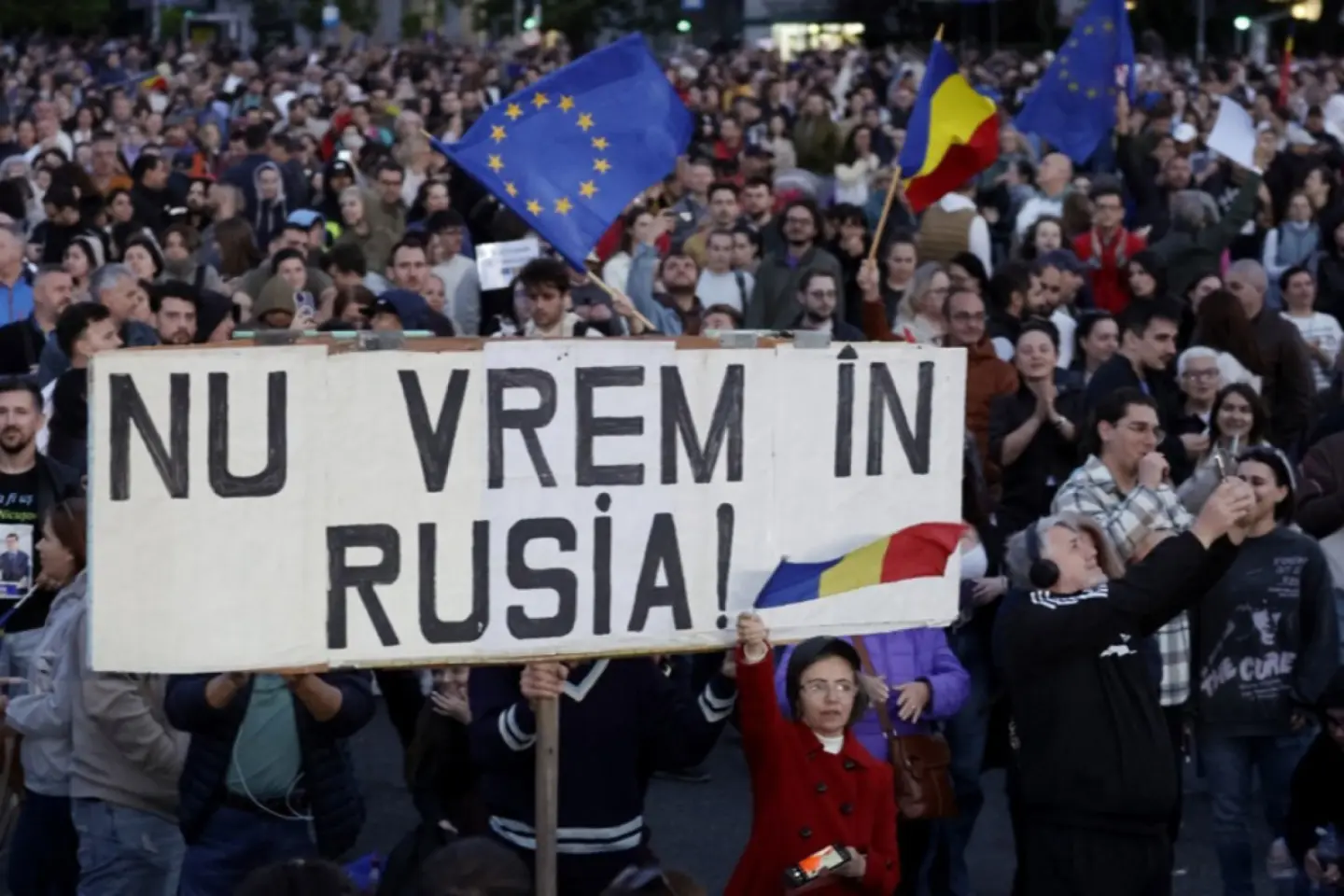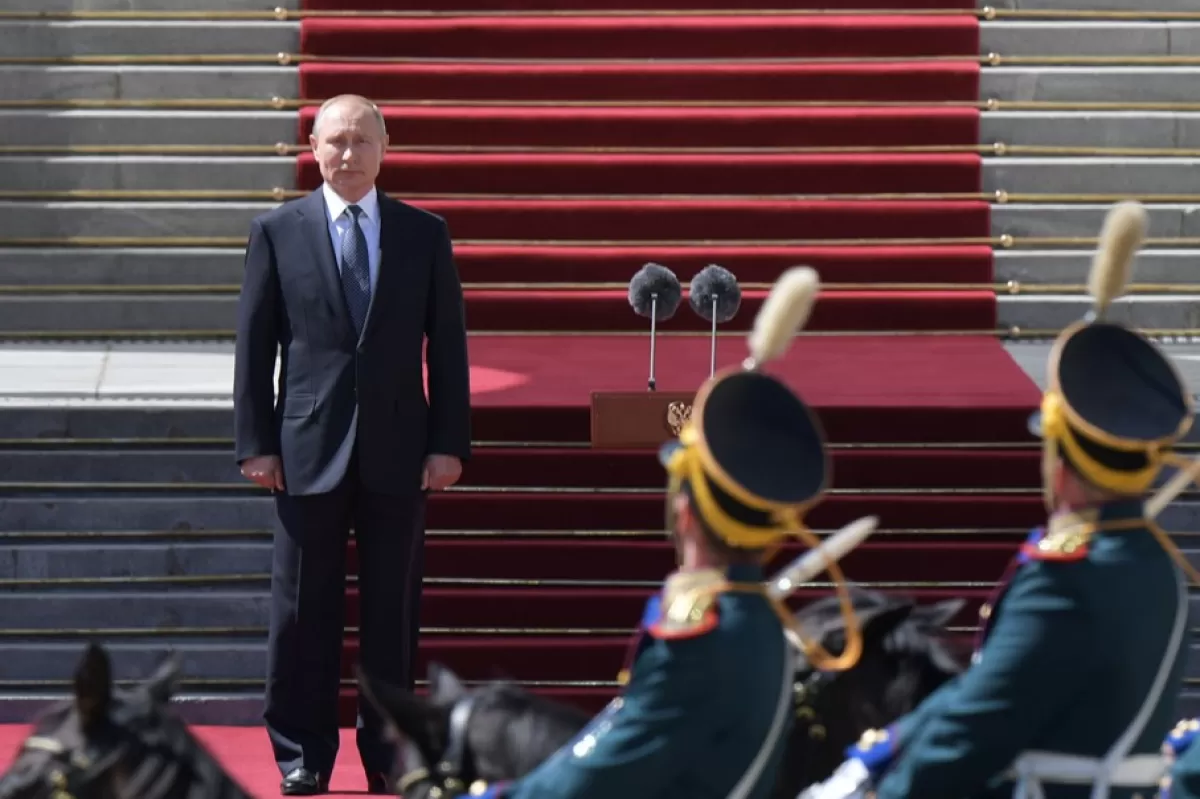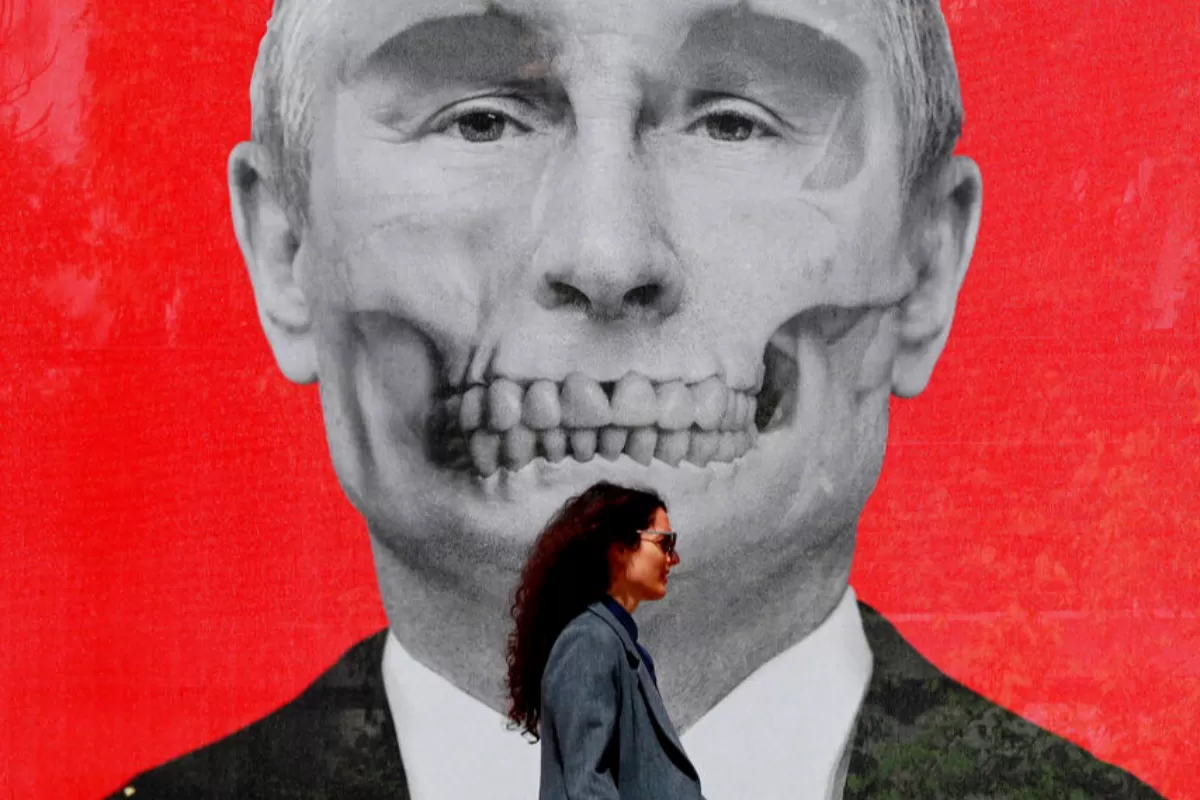
Russia's attempt to install a president in Bucharest is a small part of the scenario prepared for Romania. In the long term, Moscow aims to culturally "reprogram" Romanians - through disinformation - so that they abandon the West and choose the "Russian world".

A good relationship with Russia would help the US isolate China. But Putin's decision to continue the war in Ukraine could convince Washington that Europe remains its most important partner.

China is the main threat to the US, which would benefit from the weakening of the Beijing-Moscow axis. A Trump-Putin deal may entail, however, sacrificing Ukraine and problems for the EU.

Russia has also co-opted North Korea in the war against Ukraine and is stepping up its operations in Moldova and Georgia. Moscow seems to be preparing for a final showdown against the West.

Ion Antonescu’s arrest and Romania turning arms against Nazi Germany were two events that have been permanently interpreted through the lens of politics, to the detriment of a critical analysis, free from ideological constraints.

Russian propaganda is now fixed on Romania and Moldova. The Kremlin is reiterating a number of older Soviet narratives, such as the one on Moldovenism, while at the same time spreading new lies, for instance claiming Romania has allegedly given Moscow its treasure.

Historical arguments and evidence regarding the Romanian Treasure are completely disregarded by Russia, which wouldn’t observe its international obligations. Romania must approach the issue of the Treasure through the lens of the war in Ukraine.

Beyond Ukraine, Moscow is working on three fronts: strengthening the regime by "shaking up" its own elite, establishing governments-in-exile in former Soviet satellites, and promoting a pro-Russian discourse in the West.

Putin has so far avoided a confrontation with the women who demand the return of servicemen from the front in Ukraine. History shows that Russian women are capable of causing trouble for authoritarian regimes.

The lack of progress on the front, domestic issues and allies’ fatigue may push Ukraine towards a peace with Russia. This would lead to a break with the West and fuel Moscow's imperialist ambitions.

The protracted war in Ukraine has made Western countries willing to cooperate with Russia increasingly vocal. These countries persevere despite the sanctions, although they face countless other problems.

Putin’s regime, threatened by pro-war extremists and domestic squabbles

Putin’s propaganda managed to bring Russia to the brink of a civilizational makeover, at the end of which we will finally be able to claim that Russia’s quest for empire has truly ended.

Putin’s Russia is a conglomerate of toxic residue carried over from successive historical eras. From Russia’s imperial past, Russia inherited the fixation of becoming a global power. From the Soviet era, Putin sought to capitalize on the symbolic remnants of the superpower status, to make Russians believe this chapter in Russia’s history represented the pinnacle of their political existence. He added to this legacy the cynical and cunning attitudes specific to the criminal underworld, and he wrapped them in the illusion of power and wealth, to conceal the ruin and rot of widespread corruption.

A genuine taboo of international relations, which responsible leaders always sought to avoid in times of crises, the nuclear “button” has become commonplace in Russian rhetoric in recent years. Drawing on his crude professional experience, which is based on operative textbooks and a number of heroic legends fabricated by Soviet propaganda, Putin is confident that restraint is but a sign of fear. Lacking in any sense of intellectual finesse, the Russian leader has managed to trivialize the nuclear threat, which proves he doesn’t always have a good understanding of the terms he uses.

A country of strategic importance but not indispensable, involved in the war effort despite keeping its distance, Romania cannot congratulate itself enough in official discourse for having long foreseen the aggressive plans of Putin’s Russia. As usual, Romanian officials contend themselves with the dangerous illusion that nothing should be changed in their approach to the territory that separates Bucharest from Moscow.

Putin's invasion of Ukraine is first and foremost a warning to all those who are convinced that the shortcomings of democracy, especially there were it’s still in a process of consolidation, can be combated by a kind of transfer of expertise from authoritarian regimes. With the example of China in mind, but paying close attention to Putin's propaganda, many Romanians, including politicians, were convinced that, despite its “shortcomings”, authoritarianism was effective.